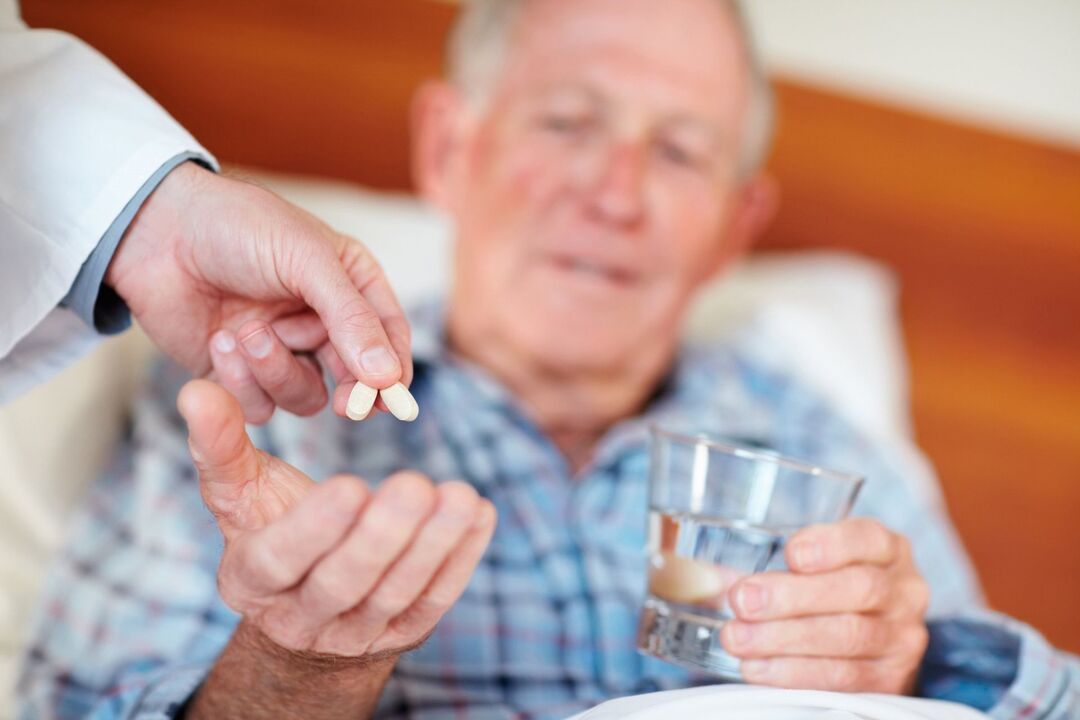
Prostate adenoma and prostatitis are two diseases that cause a real anxiety attack in men. These "male" pathologies are not necessarily analogous, although in both cases the prostate gland is affected and you must take medication to treat prostatitis and prostate adenoma, use additional therapies, and prescribe surgery for complications. But when it comes to adenomas, they mean benign neoplasms, and prostatitis is an inflammatory process that occurs in the prostate gland.
Both diseases are more commonly diagnosed in men aged 45 or 50, with many men mistakenly believing that the adenoma is a complication of prostatitis. This misconception is often based on the similarity of symptoms - both pathologies are accompanied by difficulty in urination and pain. The treatment has some similarities as well as major differences.
Principles of Treatment of Diseases
Consider the main stages of therapy for prostate adenoma and prostatitis. In both cases, treatment should be comprehensive, which will make it more effective. In men, acute prostatitis can be treated with antimicrobial therapy by taking broad-spectrum drugs, anti-inflammatory drugs and desensitizing drugs. If you suspect an abscess, it is determined to open the source of a purulent inflammatory process.
Medication is designed to stabilize the patient's condition by lowering the temperature, stopping the inflammation, and bringing the general condition back to normal. The doctor confirms the need to remove the abscess with rectal and instrumental examination, laboratory tests. After the autopsy, a drain is placed in the hospital to remove the pus. After the prostate is emptied of pus, the inflammatory process stops, drainage is removed, and then the wound heals in about a week.
Chronic prostatitis in men requires a longer duration of treatment against the background of changes in normal lifestyle and diet. The main goal of therapy is to remove the blockage. To do this, use:

- Taking antimicrobial drugs for two to eight weeks.
- Means that improve blood circulation.
- Prescribing non-steroidal anti-inflammatory drugs.
- Application of physiotherapeutic methods - magnetotherapy and laser treatment. Ultrasound, reflexology and hirudotherapy are also recommended.
- Cloth massage.
Modern therapeutic methods guarantee a fairly stable remission, which can last for years, and complete recovery with a successful coincidence of conditions.
When prostate adenoma is detected in the early stages of development, the most effective treatment is medication. As a treatment for prostatitis in men, physiotherapy, dietary therapy are prescribed and lifestyle adjustments are recommended. The purpose of the drug is to slow down the growth and reduce the volume of the gland, to reduce the severity of urinary disorders, for which they are used:
- Antimicrobial agents.
- Drugs that regulate hormonal metabolism allow the pancreas to become smaller.
- Medications are recommended to improve the tone of the prostate and urethra to stabilize the urinary process.
- Vegetable capsules are difficult to work with because their movements are not fully understood.
- Photodynamic therapy is prescribed.
- Ozone therapy, exercise therapy
In both cases, after consultation with the attending physician, folk recipes are allowed to be used as an additional tool. Medications used for prostatitis and adenoma will give the best results against the background of the victim's withdrawal from addiction.
Use of antibiotics in the formation of prostatitis and glandular adenoma
Think about what medications you should take for prostatitis and prostate adenoma, and start with antimicrobials. Antibiotics for prostate adenoma are used only when a bacterial infection is associated with the disease, which is very common. Antimicrobial drugs for prostatitis are among the mainstays of therapy. In both cases, the following may be specified:
- Penicillin drugs. They are available in the form of tablets, injections and oral suspensions.
- Substances of tetracycline group.
- Cephalosporins. The main drugs for prostatitis. They are prescribed when inflammation is triggered by gram-positive or gram-negative bacteria, anaerobic pathogens. Substances should be administered parenterally.
- Fluoroquinolones. They are prescribed in the presence of ureaplasma, chlamydia, gardnerella, staphylococcal or streptococcal pathogens, Escherichia coli or mycoplasma.
- Macrolide group. The advantage of the drugs is their low toxicity, in addition, they can accumulate in the prostate. Medicines are produced in tablets or solutions.
- Aminoglycosides. This is an excellent choice if the cause of the inflammation has not been identified or if there are several of them.
Treatment with antimicrobial drugs for these diseases can eliminate many negative symptoms, but it is accompanied by side effects. For the most part, this is a disorder of the digestive system and the formation of dysbiosis.
Therapy with inhibitors and blockers
Among the remedies for prostatitis and prostate adenoma are α1-adrenergic blockers and inhibitors. The former have a relaxing effect on the muscle tissue of the prostate gland, which allows you to quickly eliminate muscle spasms, which normalizes the process of impaired urination in 85%. In addition, such drugs can cause a sharp drop in blood pressure, which should be taken into account when prescribing.
Medications for prostate adenoma include 5-alpha reductase inhibitors. These drugs are most commonly used because they prevent the development of pathology, help reduce the size of the prostate and help normalize the urinary process. Inhibitors are a very effective tool, because after a course of therapy, more than 50% of victims do not need surgery. Combined therapies have a greater effect, and the results are more stable than mono-therapies.
Prostate pain and anti-inflammatory drugs
Therapy for the considered pathologies involves the elimination of pain and the elimination of inflammatory processes. Pain is especially unbearable during the exacerbation of the disease, antispasmodics help to eliminate it. They help relax the smooth muscles of the prostate gland and help improve blood circulation.
Inflammatory processes in the prostate gland are characteristic of prostatitis. If you neglect treatment, against the background of constricted ducts will develop pain, impaired erectile function, accompanied by urinary retention. Often, when recommending how to treat prostatitis, doctors prescribe medications to relieve the inflammation, which in many cases can relieve the negative symptoms.
An inexpensive and effective drug for prostatitis, which is an anti-inflammatory, non-steroidal, antipyretic agent, can also be used. Any medication should be taken strictly as directed by the physician and under his direct supervision.
Herbal preparations used in treatment
Medications that have a significant positive effect on adenoma - herbal medicines, among which is selected Permixon palm extract.
Can be used:
- A drug that has a positive effect on the metabolism of the system, it is also a booster. Contains sandalwood, sage, ginseng, ginger, cloves, calamus & other ingredients
- It is a dietary supplement with more than 40 ingredients, most of which are of plant origin.
- The drug is used as an antiseptic, analgesic and immunomodulator with antipyretic and anti-inflammatory properties. The product contains burdock root, elm and ash bark, juniper berries and bear berry leaves.
This is not a complete overview of the drugs that can be used to treat prostatitis and prostate adenoma. However, they should be prescribed only by a doctor, which will avoid unpleasant and dangerous consequences.
























